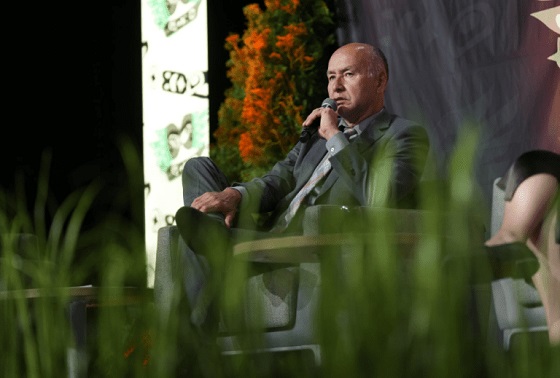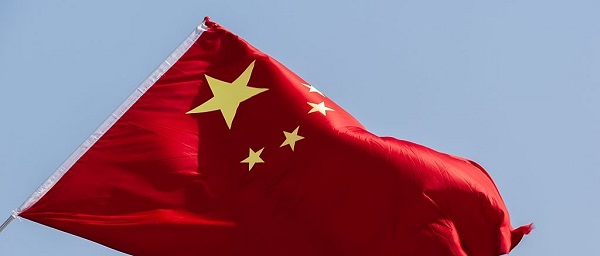Energy
Biden chose Venezuela over Canada for oil
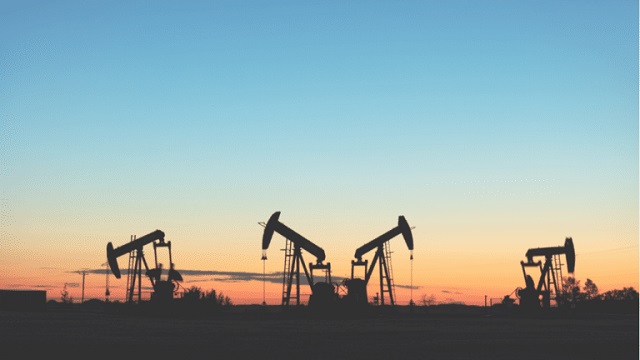
From the MacDonald Laurier Institute
By Brian Lee Crowley
Biden is welcoming oil from one of Latin America’s most odious regimes. It’s a big win for Nicolás Maduro, but a bad deal for America and Canada
The United States needs more heavy oil for a whole series of reasons. President Joe Biden could have chosen to have that oil come from a close friend and ally, environmentally-conscious Canada, or from one of the world’s nastiest regimes, Nicolas Maduro’s Venezuela, which doesn’t give a toss about the environment. Which did he choose?
In exchange for modest concessions on electoral reform, the Biden administration just lifted sanctions on Venezuela, allowing them to export hundreds of thousands of barrels a day of vital heavy oil to the United States. The shale oil revolution has not and cannot change the fact that the US produces virtually no heavy oil, yet many of this country’s refineries, especially on the Gulf Coast, were set up to refine that kind of oil. Most of their heavy oil is from Canada, which is why that country is far and away the largest exporter of oil to America— more than twice as much as Saudi Arabia, Mexico, Russia, and Colombia combined. If America is now a net exporter of oil, it can thank Canada.
The war in Ukraine caused unpopular price hikes at the gas pump. In response, the Biden administration has drawn down the Strategic Petroleum Reserve (SPR). That drawdown focused on medium and heavy crudes. OPEC responded with supply cuts aimed at throttling the supply of these strategically important crudes.
The drawdown of the SPR is reaching its limits but the risk of higher gas prices in an election year is rising. To OPEC and Ukraine, we must now add the heightened risk of conflict spreading in the Middle East.
In this context, recall that one of the very first acts President Biden took on reaching office was to cancel the permit for the Keystone XL (KXL) pipeline, a permit issued by his predecessor. Keystone XL was intended to provide 830,000 barrels a day of Canadian heavy crude to those Gulf Coast refineries. Pipe was already being laid.
Had President Biden allowed KXL to proceed, the supply of heavy oil to the US industry would have been secure, risky drawdowns of the SPR unnecessary and America would have been much less vulnerable to global supply disruptions and OPEC’s manipulations.
Instead, the President colluded with a campaign to vilify oil from Alberta’s oilsands as “dirty oil.” Yes, producing Canada’s heavy oil emits greenhouse gases. But then all heavy oil is GHG intensive, and Venezuela is the highest emitting in the world.
The Canadian oil & gas sector has invested heavily and successfully in emissions reductions. The industry has a $75 billion plan to decarbonize and achieve net zero by 2050, focused on carbon capture and storage and small modular nuclear reactors.
Venezuela has done nada in terms of real improvement in the environmental footprint of its heavy oil production. What it does have is a regime that is world-leading in terms of its human rights abuses and the damage it has inflicted on a once-prosperous economy. Every dollar America spends on Venezuelan oil will prop up one of the most violent and repressive regimes in the Americas, where Amnesty International says in 2022:
The security forces responded with excessive force and other repressive measures to protests…to demand economic and social rights, including the right to water. Impunity for ongoing extrajudicial executions by the security forces persisted. Intelligence services and other security forces, with the acquiescence of the judicial system, continued to arbitrarily detain, torture, and otherwise ill-treat those perceived to be opponents of the government of Nicolás Maduro.
A recent UN Fact Finding Mission to Venezuela talked about the “unremitting human rights crisis” and patterns of crimes against humanity in that country. Nearly 8 million Venezuelans are estimated to have fled the economic and humanitarian crisis there.
Meanwhile, Canada, while not perfect, has robust human rights protections and high environmental standards. It is also a magnet for immigrants (including tens of thousands of Venezuelans), having one of the highest shares of its population born elsewhere in any country in the world.
In 2021 President Biden was happy to offend one of America’s closest allies by blocking KXL because it was inconsistent “with my administration’s economic and climate imperatives.” Three short years later, behind the fig leaf of Venezuelan electoral reform, he is welcoming much more environmentally damaging oil from one of Latin America’s most odious regimes, all to try and keep the price down at the pump. That’s a big win for Nicolás Maduro, but a bad deal for America and Canada.
Brian Lee Crowley is the Managing Director of the Center for North American Prosperity and Security (www.cnaps.org).
Alberta
The Technical Pitfalls and Political Perils of “Decarbonized” Oil
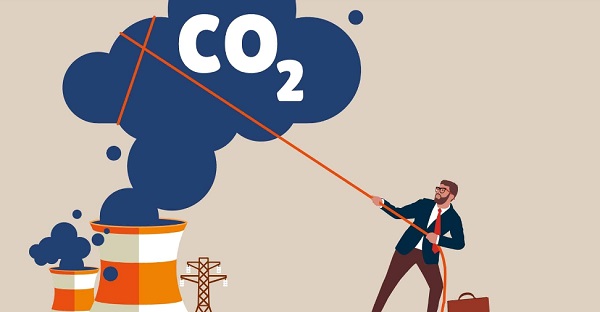
By Ron Wallace
The term “decarbonized oil” is popping up more and more in discussions of Canada’s energy politics. The concept refers to capturing and storing carbon dioxide (CO₂) generated during oil production and processing, thereby reducing greenhouse gas emissions, in order to support the continued strength of Canada’s oil and natural sector, the nation’s number-one export earner and crucial to the economies of Alberta and Saskatchewan. Projects like the Weyburn Carbon Capture, Utilization and Sequestration Project in Saskatchewan have demonstrated the idea’s technical feasibility by sequestering 1.7 million tonnes of CO₂ annually while producing incremental oil.
The key question now is whether this type of process can be dramatically scaled up – by anywhere from six to over 20 times – to facilitate what Alberta Premier Danielle Smith has termed a “grand bargain”: using carbon capture and storage (CCS) to gain a greenlight from the federal government for a new oil export line to the West Coast, enabling Alberta to continue growing oil production and generating jobs while advancing Ottawa’s climate goals. Prime Minister Mark Carney may be prone to hedging and ambiguity, but he has now made it clear that any such pipeline will indeed be contingent on Alberta proving it can “decarbonize” its oil
production.
The Pathways Alliance, a group of six producers representing 95% of Canada’s oil sands production, has designed a $16.5 billion CCS network to capture and store CO₂ from up to 20 facilities, aiming for 11 million tonnes per year in Phase 1 and a breathtaking 40 million tonnes in Phase 2. Pathways is intended to help build consensus in favour of a new oil export pipeline that could enable up to 25% growth in Alberta’s oil production – generating possibly $20 billion per year in export revenues.
While credible critics, including the Institute for Energy Economics and Financial Analysis (IEEFA) and energy economist Jennifer Considine, highlight the high costs, uncertain revenues and poor returns from several other attempts at large-scale CCS, Alberta’s UCP government appears to view it as the way out of its current impasse with Ottawa. It believes the profits generated from exports of Alberta’s decarbonized oil could themselves help finance the CCS facilities required for the “grand bargain” to be sealed.
Smith has been keeping up the political pressure, recently announcing that Alberta will fund and lead the effort to submit a formal pipeline application to the Carney government’s new Major Projects Office. Major obstacles remain, but none is more serious than Carney maintaining predecessor Justin Trudeau’s suite of anti-energy policies, particularly the draft oil and natural gas emissions cap, as part of his government’s intention to meet net-zero targets by 2050 (although Carney has recently indicated some flexibility in this view). Smith argues that this is effectively an “unconstitutional” production cap that threatens Alberta’s economic future, vowing to challenge it legally if Carney doesn’t shelve it.
Smith’s government at the same time is pursuing a more conciliatory tactic, offering to help advance federal climate objectives through CCS in order to speed up pipeline approvals under Carney’s Bill C-5. In this track, there is a question as to whether Alberta may be walking into an economic and technological trap that it will regret.
That is because the “grand bargain” would create two different classes of oil in Canada, operating under different sets of regulations and resulting in different cost structures. Western Canada’s crude oil producers would shoulder costly and technically challenging decarbonization requirements – plus the threat of federal veto over any new oil projects that weren’t similarly “decarbonized”. Canadian-produced oil would enter international export markets at a significant if not ruinous competitive disadvantage, risking not only profitability but market share. Eastern Canada’s oil refiners, meanwhile, would remain free to import fully “carbonized”
oil at the lowest prices they could get from countries with significantly looser environmental standards.
The Alberta oil sands currently generate 58% of Canada’s total oil output. Data from December 2023 shows Alberta producing a record 4.53 million barrels per day as major oil export pipelines including Trans Mountain, Keystone and the Enbridge Mainline operated at near capacity. The same year, Eastern Canada imported on average about 490,000 barrels per day by pipeline and sea from the United States (72.4%), Nigeria (12.9%) and Saudi Arabia (10.7%). Since 1988, imports by marine terminals along the St. Lawrence River have exceeded $228 billion, while imports by New Brunswick’s Irving Oil Ltd. refinery totalled $136 billion from 1988 to 2020.
The economic viability of large-scale CCS projects remains completely unproven; indeed, attempts to date in other jurisdictions have performed poorly. Attempting to “decarbonize” Alberta’s oil, then, makes little economic sense; it appears to be based more on the Carney government’s ideological objectives set to achieve global climate objectives.
The question thus becomes why Alberta is agreeing to a policy that could trap its taxpayers in a hugely expensive and unfair system that could imperil consideration of any new pipelines for Canadian oil exports, especially when private capital already largely remains on the sidelines.
Not only Albertans but Canadians generally need to carefully reconsider any “grand bargain” that hinges on “decarbonization” of western Canadian oil, because doing so threatens the economic viability of Alberta oil production and associated export pipelines – without meaningfully reducing global CO 2 emissions. And if industry proves unable to raise the vast capital required to construct the CCS projects, while lacking the cash flow to cover the steep ongoing costs needed to operate them, then where is the money to come from? At a time when Canada’s fiscal trajectory is so worrisome, the shortfall had better not be made up through public subsidies.
Even worse than the yawning fiscal risks, such an approach risks splitting the country into two economic zones: a West burdened by costly decarbonization requirements making Alberta’s oil some of the world’s least profitable to produce, and an East benefiting as before from cheaper imported oil. This is hardly conducive to national unity. It is time for Alberta to reconsider the “grand bargain”.
The original, full-length version of this article was recently published in C2C Journal.
Ron Wallace is a former Member of the National Energy Board.
Alberta
Oil Sands are the Costco of world energy – dependable and you know exactly where to find it

From Resource Works
Canada’s secret energy advantage: long life, no decline
Frankly, Canadians should hold the oil sands in higher esteem. The more I see how the world really works, the prouder I am of this resource.
When Fatih Birol, Executive Director of the International Energy Agency, speaks, the world listens. His latest warning is blunt: decline rates are the elephant in the room for global energy.
Oil and gas fields almost everywhere face natural decline. Shale wells lose about 70 per cent of their output in the first year. Many conventional reservoirs also taper off, often in the range of 5 to 7 per cent annually, though actual decline rates vary widely depending on geology and field management. The result is that nearly 90 per cent of global upstream spending now goes simply to replacing lost supply.

Fatih Birol, Executive Director of the International Energy Agency, at right with the author in Winnipeg in 2017.
Birol estimates that it is taking about $500 billion a year just to keep the industry running in place. If that stopped, the world would lose the equivalent of Brazil’s and Norway’s combined production every year. That’s how steep the slope has become.
Which brings us to Canada’s quiet advantage. Our oil sands — especially the mining and upgrading projects in northern Alberta — don’t behave like shale. Once built, they produce steadily for forty years or more. No frantic drilling treadmill. No production cliff.
Oil sands insiders call this the “long life, no decline” advantage.
It may sound like inside baseball. But in energy economics, this distinction is huge. In fact, it’s so critical that one of the nation’s largest energy producers, Calgary’s Canadian Natural Resources, recently devoted an entire investor slide to it, spelling out the contrast between shale and oil sands. When a major company takes the trouble to educate even sophisticated investors, you start to suspect the point isn’t as widely understood as it should be.


Another underappreciated benefit of this advantage is what it makes possible on the decarbonization front. Because oil sands production is steady for decades, these assets provide a stable platform to deploy major emissions-reduction technologies — carbon capture and storage, small modular nuclear reactors, advanced heat recovery. These are not quick fixes; they require billions in upfront capital and long timelines to pay back. That kind of commitment makes little sense if your underlying resource base is collapsing year after year. Canada’s stability means we can make those big bets. When Prime Minister Mark Carney refers to “decarbonized oil”, some might dismiss that as magical thinking, but I’m pretty sure what he means is oil sands deposits that can be subject to long-term, intensive efforts to do all of these things – a luxury not available to those whose eggs are all in the drilling basket.
But there’s a bigger geopolitical conversation here. Surely if the United States wants to secure abundant oil in its own “backyard,” the logical step would be to ensure there is enough pipeline capacity from Canada. We’ve been here before with Keystone XL. The project became a political lightning rod, but the fundamental logic has not changed: the U.S. and their refineries will need reliable long-life oil for decades to come. Canada has it. The question is whether Washington is prepared to act in its own strategic interest.
That means the long life, no decline message is not just an investor presentation footnote. It’s a fact that needs to be recognized in Ottawa, in Washington, and across the Canadian public. In Ottawa, because policymakers must grasp that the oil sands are the crown jewel of Canada’s resource economy.
What Washington needs to keep front of mind is that Canada is not just a friendly neighbour — we are a cornerstone of North American energy security. Canadians, whose views have been shaped by years of opposition campaigns that tried to make us ashamed of the oil sands, seem to be open again to the possibility that energy is more complicated that polarized public debates often make out.
Frankly, Canadians should hold the oil sands in higher esteem. The more I see how the world really works, the prouder I am of this resource.
To understand in more detail what this long life, no decline phrase is all about, think of it this way. For decades, the global oil system has resembled hunting and gathering. Companies poke holes in the ground, chase short-lived wells, and then move on to the next patch. Technology has reduced the uncertainty, but the feel is still primitive — like a parent rushing to the corner store every night for a quart of milk. It works, but it’s expensive, unreliable, and not built for the long haul.
Canada’s oil sands are the opposite. They are the Costco of energy: a big-box supply that doesn’t run out after one trip. Instead of scrambling for the next well, the resource is completely known, concentrated in one place, and designed for decades of steady output. That allows entire communities, supply chains, railroads, and international ports to grow around it. The oil sands are less like hunting and more like a factory — stable, predictable, and always in stock.
If Costco can sell loyalty with a simple membership card, why can’t we brand Canada’s enduring energy advantage just as boldly?
Great observers of energy markets like Daniel Yergin and Anas Alhajji have hinted at this for years: decline is relentless, durable resources are rare, and those who hold them wield strategic power. The IEA’s latest report confirms it. Four out of five barrels of oil today come from fields already past peak. Nine out of ten cubic metres of natural gas come from the same category. The world isn’t just chasing new demand growth — it’s sprinting to replace what geology is taking away.
And indicators are that American oil producers sense the easy years of global oil dominance are fading fast. “The US shale business is broken,” said one executive recently, according to the Financial Times. “What was once the world’s most dynamic energy engine has been gutted by political hostility and economic ignorance.”
That’s why Canada’s message has to be clear and confident. This is not the time to downplay the value of our oil sands. It’s time to explain, unapologetically, that in a world of decline, Canada’s long-life, no-decline resources are indispensable.
-
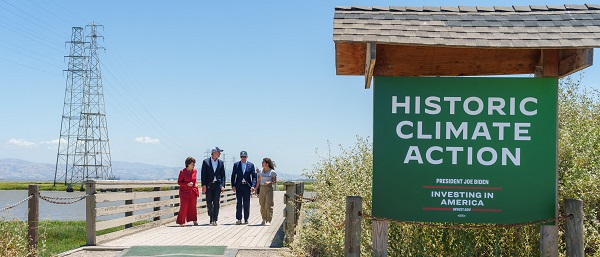
 Daily Caller17 hours ago
Daily Caller17 hours agoUtah Republican Senator Planning To Attend Big Globalist Climate Shindig Despite Trump’s Energy Policies
-

 Business1 day ago
Business1 day agoUN, Gates Foundation push for digital ID across 50 nations by 2028
-

 C2C Journal1 day ago
C2C Journal1 day agoCharlie Kirk and the Fragility of Civic Peace
-

 Energy5 hours ago
Energy5 hours agoIndigenous Communities Support Pipelines, Why No One Talks About That
-
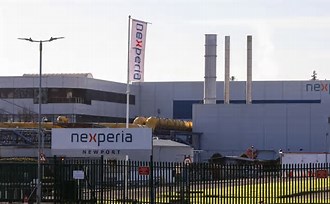
 Business1 day ago
Business1 day agoNetherlands Seizes Chinese-Owned Chipmaker in Unprecedented Security Move
-

 Brownstone Institute1 day ago
Brownstone Institute1 day agoTrump Covets the Nobel Peace Prize
-

 COVID-192 days ago
COVID-192 days agoThe Trials of Liberty: What the Truckers Taught Canada About Power and Protest
-
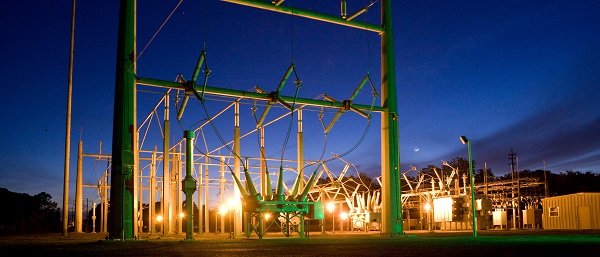
 Business16 hours ago
Business16 hours agoFinance Titans May Have Found Trojan Horse For ‘Climate Mandates’


